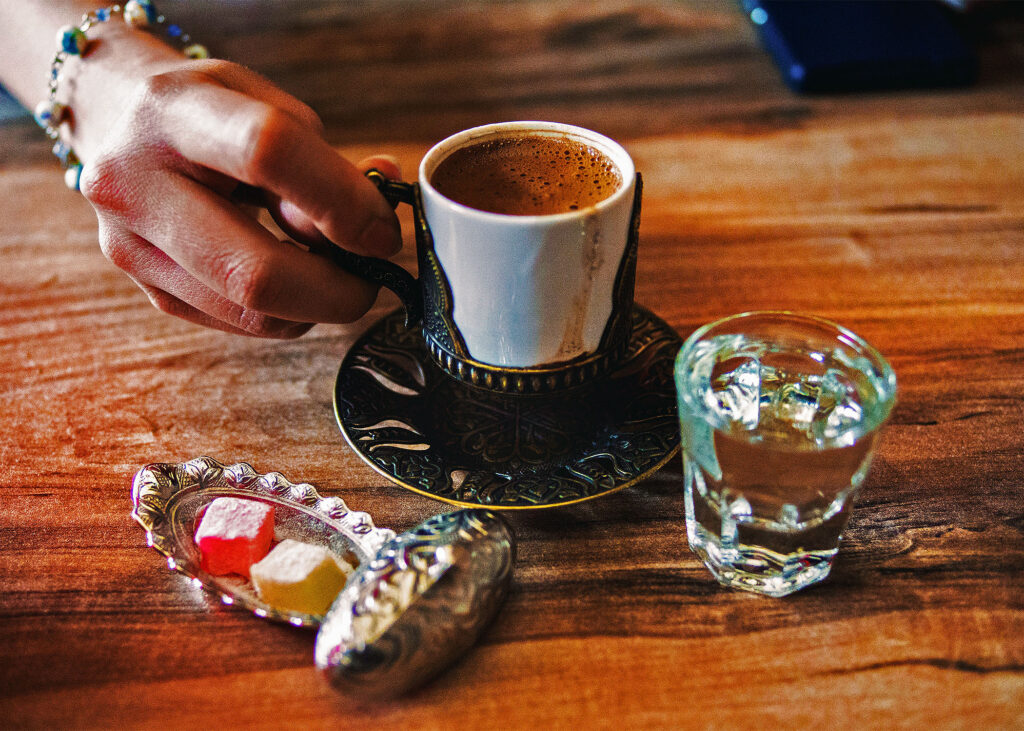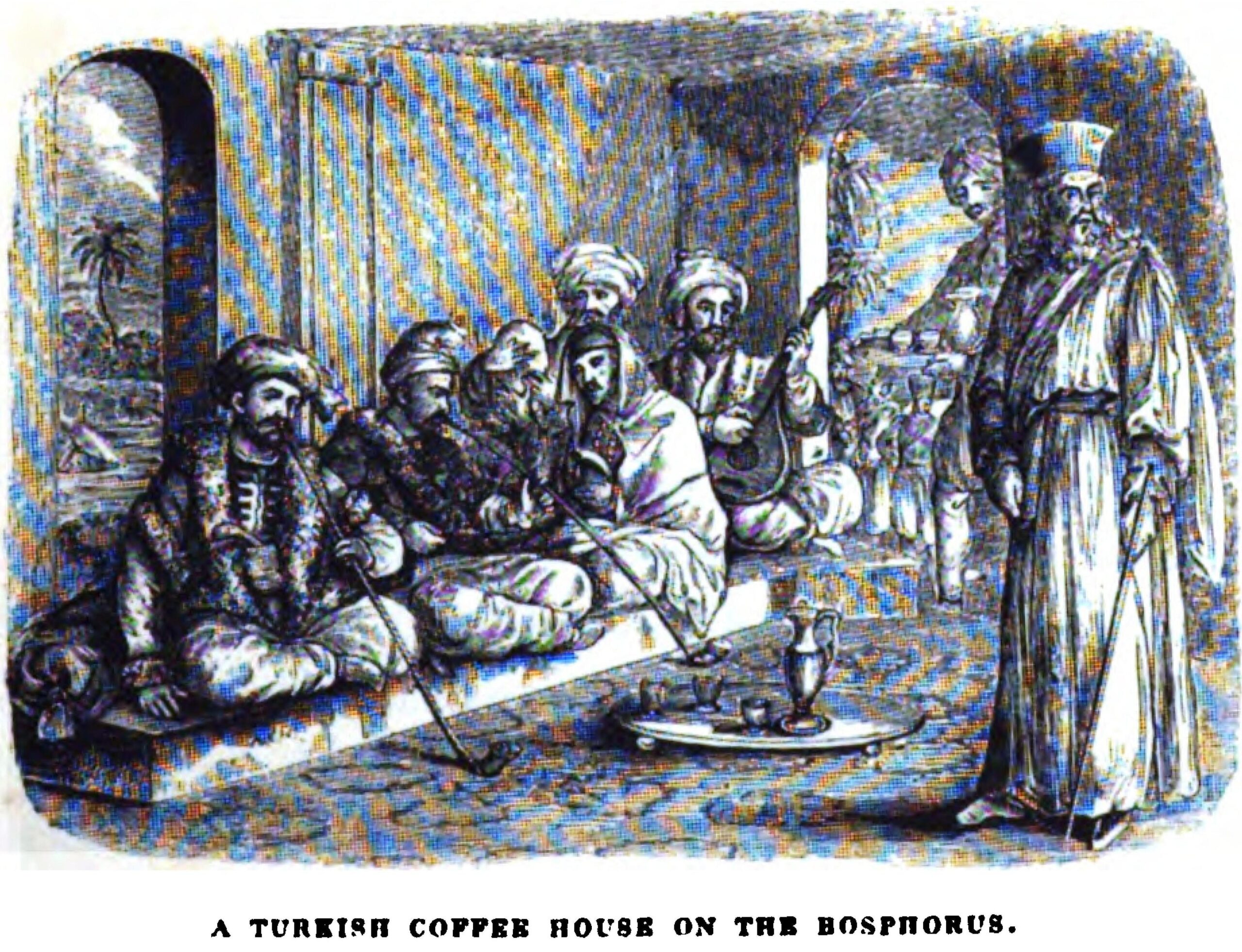Imagine sitting at a small rounded table in a coffee shop located in a busy narrow street somewhere in Turkey. You are enjoying the commotion as people pass you by and the smell of coffee lingers in the air. The barista has just started preparing your order; the cezve, the traditional pot,is filled with water, coffee, and sugar; and the liquid will start boiling soon. The cup will be on your table any minute, and the joy of a bittersweet drink will probably be one of the highlights of your day.
Ever since coffee was introduced to Turkey in the sixteenth century, it made such an impact on the culture that it became an integral part of not just various ceremonies, but also day-to-day habits. It became one of the symbols of Turkey’s incredible cultural heritage and it still carries its importance in the modern era; even more so, as it evolved and successfully adapted.
Turkish coffee and its rich history
The story of how coffee started its incredible journey throughout the Turkish culture has two different versions. One states that in 1521 the Ottoman ruler of Yemen, Ozdemir Pasha, wanted to impress the Ottoman Sultan, Suleiman the Magnificent, so he studied the way Yemeni prepared coffee in order to make the drink specially dedicated to the Sultan himself. The ruler was so impressed with the present that he signed an official document to celebrate the ordeal and the rest is history. Coffee started spreading across the empire while new customs emerged to welcome it.
The second version of the story involves two Syrian traders who opened a shop in Turkey in 1554 during the rule of the very same Suleiman the Magnificent. They offered various drinks to their customers and since they were already familiar with coffee, which was already introduced to Syria by Greece, it was also on the menu. Soon, coffee got a catchy nickname, black drink, and its fame began to grow across the region.
Coffee and its impact on Turkish culture
After it made its debut in the sixteenth century, coffee became an integral part of social life in Turkey. Under the reign of Sultan Selim II. coffee shops gained popularity across the country where Turkish men frequented the establishments in order to discuss everything from politics and arts to trades and religion. In the seventeenth century these gatherings became so prominent that the Sultan Murat III banned coffee consumption because it inspired political turmoil and other rebellious activities. Fortunately, the ban was lifted by the Sultan’s successors and coffee was served once again allowing the ritual to be reborn; traders continued exchanging information, politicians discussed, writers wrote their books, while their coffees cooled on the table. And this is why coffee rituals sealed their place in history; because they celebrated that special period of the day when we feel at ease and most comfortable.
There is one other ceremony where coffee played an important role and it is one of a marriage proposal. As a part of Turkish culture, young girls learned how to prepare coffee because as future brides they had to demonstrate their coffee-making skills to the groom’s family. They would then observe how she prepares coffee and then presents it to the guests. It was a test of patience and knowledge and the ritual played a significant part in the ceremony. Not much has remained from this ritual but the celebration of marriage is still not complete without a small cup full of the delicious black drink.
When all is considered, we can easily say that Turkish coffee is one of the most prominent aspects of Turkish culture. The way it is prepared and served is so unique that it entered the UNESCO list of cultural heritage, and rightfully so because it is such a strong symbol of hospitality and social interactions specific to this region.

So why not celebrate this amazing beverage? Prepare yourself a cup of Turkish coffee, sit down, and enjoy your day. To make the serving complete add a glass of water and some Turkish Delight (a gelatinous sweet confection) and it will feel like you are sitting on the streets of Istanbul. Some even believe Turkish coffee can be used for fortune-telling! After you had your coffee, turn the cup upside down, let the grounds cool, and then ask someone to interpret the future from the coffee grounds remains. Perhaps the pattern they form will give you some good news about the future, who knows. We certainly wish you luck and many cups of coffee!



